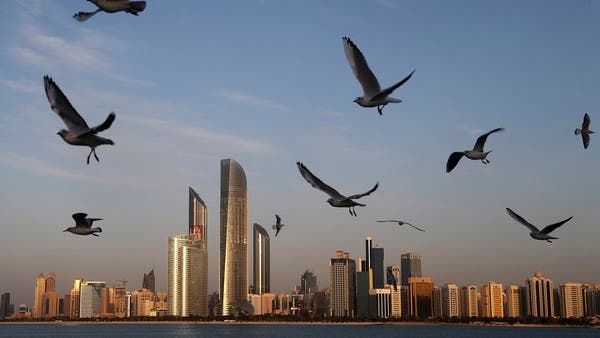[ad_1]
His Highness Sheikh Mohamed bin Zayed Al Nahyan, President of the UAE, said the overall goal of the UAE’s ambitious Centennial 2071 project is “to enable future generations to live happier lives in a better environment, with More opportunities and enhanced communication with the world”.
This blueprint for the future is based on four pillars: education, economy, government development and community cohesion. But to support plans to make the UAE the best country in the world by 2071, healthcare can play a vital role. National leaders understand that we cannot achieve a happy and cohesive society without a healthy population receiving the highest standard of healthcare in the world. This means preventive care rather than curative care.
For the latest headlines, follow our Google News channel online or via the app.
In Abu Dhabi, the Department of Health (DoH) is already working towards its vision of delivering world-class healthcare, including the launch of the Abu Dhabi Health Information Exchange (HIE) platform in 2019.
The platform is an integral part of the digital transformation of Abu Dhabi’s healthcare system and is the first HIE platform in the region to securely and reliably connect public and private healthcare providers across the emirate. It enables the real-time exchange of patient health information between healthcare providers, creating a centralized database that unifies patient records, ultimately improving the quality of care and patient outcomes.
Connecting public and private healthcare providers through a digital patient information exchange system avoids the problems associated with healthcare silos – where a holistic view of a patient’s health may not be readily available to one healthcare practitioner. Practicing medicine without complete patient information can result in poor patient outcomes and increased costs. HIE can quickly provide a complete picture and support better coordination of care plans and the opportunity to provide preventive rather than curative healthcare.
In addition to creating a world-leading HIE system, Abu Dhabi has quickly established itself as a leading healthcare hub, leveraging science, innovation, digitalization and medical tourism.
Today, the emirate prides itself on providing the latest innovative healthcare treatments to maintain and enhance the health and safety of its residents. Unlike other countries, the UAE has a strong sense of public-private partnership, supported by government-led funding, and a strong desire to implement world-leading health services in both the private and public sectors.
This is supported by strategic agreements signed by the Ministry of Health with major global pharmaceutical companies. They use all available capabilities and resources to provide comprehensive health services, promote healthy lifestyles, and build a healthier, happier community.
Globally, we are witnessing a shift from curative to preventive healthcare. The World Health Organization reports that if governments do not urgently encourage their populations to be more active, the cost of physical inactivity will exceed $300 billion over a decade. But the WHO data suggest that progress could be faster and that countries need to speed up the implementation of preventive health care policies.
Another solid reason to turn to preventive care is that chronic diseases are on the rise internationally. People with chronic conditions are also the most frequent users of the healthcare system, and their needs can be the most complex or uncertain.
According to a study by the World Economic Forum, the global economic impact of five major chronic diseases — cancer, diabetes, mental illness, heart disease and respiratory disease — could reach $47 trillion over the next 20 years. This number can be reduced today by taking preventive health care measures.
It is no secret that diabetes has reached pandemic status in the UAE. The International Diabetes Federation states that the long-term care needed by diabetics costs the UAE nearly US$1 billion (AED7.3 billion) per year, with a minimum expected cost of US$5.5 billion (AED20.2 billion) once undiagnosed patients start requiring treatment for complications. Ram). Spending on diabetes has increased nearly 20 percent over the past decade and will continue to increase without an increase in preventive health care efforts.
This is where the development and implementation of health information exchanges (HIEs) brings clear benefits, as they allow for better and more consistent management of chronic disease and delivery of precision medicine. For example, some HIEs include patient risk profiles constructed from predictive models utilizing artificial intelligence and machine learning. This can predict a patient’s risk of developing a specific chronic disease based on medical data collected across healthcare settings. Risk profiling capabilities facilitate decision-making on treatments, medications and recommendations specific to the patient profile, proactively and preventatively addressing problems before they occur.
HIE is an important enabler of the continued evolution of preventive healthcare—driven by universal access to patient records—but the entire healthcare system has a responsibility to drive synergy, encourage adoption and engagement, and optimize these innovative, game-changing solutions. When HIEs reach their full potential, they will dramatically change healthcare. Clinicians gain more information, enabling them to make safer, more effective decisions. At the same time, healthcare providers and governments are better prepared to address major community health challenges, and patients have the right to access their medical information to proactively manage their healthcare.
Abu Dhabi will continue to provide cutting-edge healthcare solutions as the backbone for the UAE to realize its lofty aspirations.
read more:
Fans line up to mourn Brazilian soccer superstar Pele ahead of his funeral
Arab intellectuals will ensure the failure of Arab nationalism 2.0
Disclaimer:
The views expressed by the authors in this section are their own and do not reflect the views of Al Arabiya English.
[ad_2]
Source link



